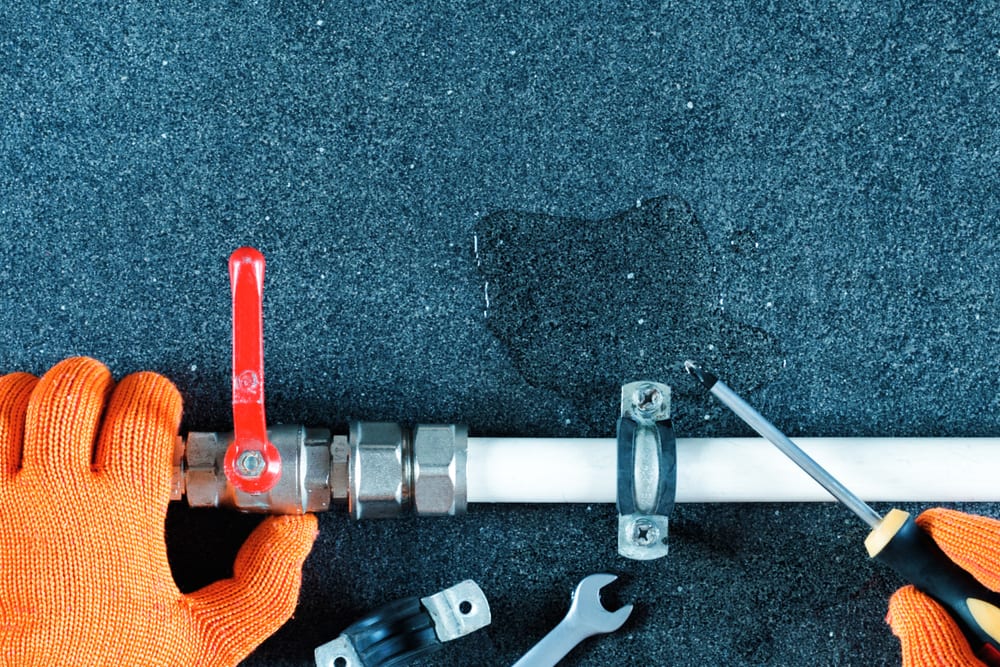Exactly how to Find and Repair Water Leaks-- A Comprehensive Overview
Exactly how to Find and Repair Water Leaks-- A Comprehensive Overview
Blog Article
The publisher is making a number of good annotation about Top leak detection hacks in general in this content directly below.

Early detection of dripping water lines can minimize a possible catastrophe. Some little water leaks may not be noticeable.
1. Check Out the Water Meter
Every home has a water meter. Inspecting it is a proven way that assists you discover leakages. For beginners, turn off all the water sources. Guarantee no person will certainly flush, make use of the faucet, shower, run the cleaning maker or dish washer. From there, most likely to the meter and watch if it will change. Because nobody is utilizing it, there must be no activities. If it relocates, that shows a fast-moving leakage. If you detect no changes, wait an hour or two and inspect back again. This implies you might have a slow-moving leak that could also be below ground.
2. Examine Water Intake
Assess your water costs and also track your water intake. As the one paying it, you ought to observe if there are any kind of inconsistencies. If you identify sudden changes, regardless of your consumption being the same, it indicates that you have leakages in your plumbing system. Remember, your water bill should fall under the same range on a monthly basis. A sudden spike in your expense indicates a fast-moving leakage.
A steady boost every month, even with the exact same habits, shows you have a slow leak that's also gradually rising. Call a plumber to thoroughly inspect your property, particularly if you really feel a cozy area on your floor with piping below.
3. Do a Food Coloring Test
When it comes to water intake, 30% comes from bathrooms. If the shade somehow infiltrates your bowl throughout that time without flushing, there's a leakage in between the storage tank and also dish.
4. Asses Outside Lines
Don't fail to remember to examine your exterior water lines also. Ought to water permeate out of the connection, you have a loosened rubber gasket. One little leakage can waste loads of water and surge your water bill.
5. Examine as well as Examine the Situation
Home owners must make it a habit to inspect under the sink counters as well as also inside cabinets for any kind of bad odor or mold and mildew growth. These two red flags suggest a leakage so timely interest is called for. Doing routine examinations, even bi-annually, can save you from a major problem.
A lot more importantly, if you recognize your residence is currently old, maintain a watchful eye on your heaters, hose pipes, pipes etc. Look for discolorations and weakening as many pipelines and also devices have a life expectancy. They will certainly likewise normally deteriorate due to damage. If you believe dripping water lines in your plumbing system, do not wait on it to escalate. Call an expert plumber right now so you do not wind up with an awful mess in your house.
Early discovery of leaking water lines can mitigate a prospective catastrophe. Some little water leakages may not be visible. Checking it is a guaranteed method that assists you uncover leakages. One little leakage can throw away loads of water and surge your water expense.
If you think leaking water lines in your plumbing system, don't wait for it to intensify.
How to Know If Your Home Has a Hidden Leak
Water Meter Reveals Inexplicable Water Usage
If you’d like to test whether or not there’s a leak somewhere in your home, you can do this using your water meter. Here is how to conduct the test:
Don’t use any water in your home for at least 30 minutes; this also means not turning on faucets or water-using appliances.
Go outside, and check your water meter for activity.
If your water meter shows that there was activity, even though no one was using any water, this proves that there is a leak in your home.Visible Mold or Mildew Growth
Leaks behind walls create moist, dark environments that allow mold and mildew to grow and thrive. Eventually, you might see mold growth forming on the wall closest to a hidden leak.
If mold is growing in an area that receives a high amount of moisture, such as a bathroom, it may simply be an indication that better ventilation is needed. However, if you see mold growth on a wall or the ceiling in an area where you would not expect, you probably have a hidden leak.
Musty, Mildew Odor
Sometimes you might not be able to see the mold or mildew that is growing as a result of a leak. However, the smell can give the problem away just as easily. If you catch a whiff of something musty, there’s a good chance that old water is collecting somewhere in your home that you can’t see.
Stained/Warped Walls, Ceilings, or Floors
When your home soaks up water, a variety of red flags can become visible, including ceiling stains, bubbling drywall, warped walls, and sagging floors. While these issues can be caused by excess humidity, they can also be signs that a pipe or plumbing connection has started leaking behind your walls.
Inexplicably High Water Bill
After a while, you get a general sense for what your water bill should be. If you own a pool or sprinkler system, your bill will tend to be higher during summer. However, if you receive a water bill that seems especially high, and you can’t figure out what caused it, then you may have a hidden leak somewhere that’s increasing your bill.
https://www.plumbingjoint.com/blog/2019/july/how-to-know-if-your-home-has-a-hidden-leak/

I hope you liked our section about Leaking water lines. Thanks a ton for taking the time to browse our content. If you please set aside a second to share this write-up if you enjoyed it. We love reading our article about Finding hidden leaks.
Report this page